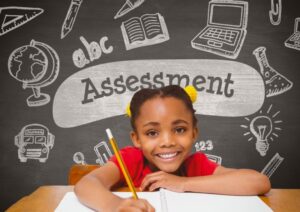Many people believe that assessment is just merely a spreadsheet of scores which defines the final outcome of the student. However, Joe Bower words “Assessment is not a spreadsheet; it’s a conversation” delineates unique thoughts about the assessment. As an educator, we should reflect on how we can integrate digital tools to support the “ good assessment practices”. I believe technology has the real potential to reform education giving priority to individualized learning. In my perspective, to make assessment more communicative we Educators should follow certain steps. Firstly, teachers should motivate students to conduct peer assessments which would definitely enhance their critical thinking skills. They will see assessment as an integral part of their learning experience, not just a final judgment of marks.

Moreover, This approach will build collaboration skills and encourage them to communicate and appreciate diverse viewpoints. Tools like padlet or Flipgrid allow students to be creative and understand open-ended learning. Furthermore, Assessment should not be considered as a one time event rather it is a reflective process therefore, educators should promote formative assessment over summative. Various tools like google sites or seesaw can be used to incorporate reflective assessment in the teaching practice which will help teachers to track students progress and think beyond final scores.
Educators should reshape the thinking and its purpose about assessment from data collection to conversation. We all together have to create an environment where education is aligned with Joe Bower’s vision. I would say the future of assessment would be a classroom where technology plays a crucial role in exchanging ideas, feedback and growth- a true conversation about learning.

Hi Mohammad,
I am also a huge supporter of peer assessment! It’s a very constructivist type of assessment as students build their knowledge by interacting with each other. Also, it saves a lot of time during a lesson as the teacher doesn’t have to check individual student’s tasks. I’ve been introducing more peer assessments recently, and I am very happy with how they are going!
Hi Aatif,
I must say I truly appreciate your perspective on how the concept of rethinking assessment as conversation can be done and the positive impacts that can result from doing so. Especially when you mentioned using formative assessments instead of summative ones, thus allowing assessment to be continuous process of tracking progress rather just a final final grade. Keep up the good work Aatif.
Latoya